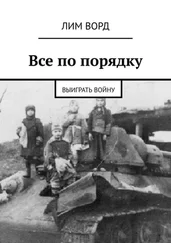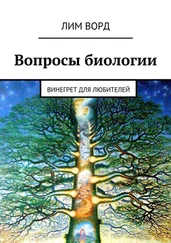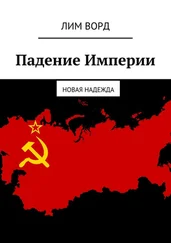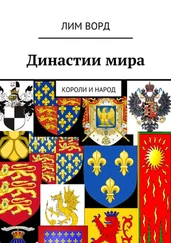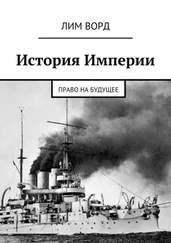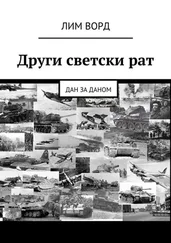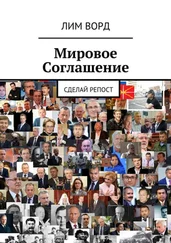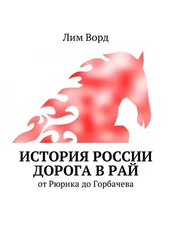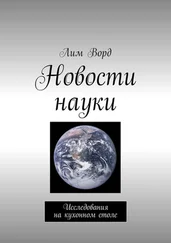Лим Ворд - Библия Времени. Найди свое
Здесь есть возможность читать онлайн «Лим Ворд - Библия Времени. Найди свое» — ознакомительный отрывок электронной книги совершенно бесплатно, а после прочтения отрывка купить полную версию. В некоторых случаях можно слушать аудио, скачать через торрент в формате fb2 и присутствует краткое содержание. ISBN: , Жанр: Политика, Публицистика, История, Эзотерика, на русском языке. Описание произведения, (предисловие) а так же отзывы посетителей доступны на портале библиотеки ЛибКат.
- Название:Библия Времени. Найди свое
- Автор:
- Жанр:
- Год:неизвестен
- ISBN:9785449318695
- Рейтинг книги:4 / 5. Голосов: 1
-
Избранное:Добавить в избранное
- Отзывы:
-
Ваша оценка:
- 80
- 1
- 2
- 3
- 4
- 5
Библия Времени. Найди свое: краткое содержание, описание и аннотация
Предлагаем к чтению аннотацию, описание, краткое содержание или предисловие (зависит от того, что написал сам автор книги «Библия Времени. Найди свое»). Если вы не нашли необходимую информацию о книге — напишите в комментариях, мы постараемся отыскать её.
Библия Времени. Найди свое — читать онлайн ознакомительный отрывок
Ниже представлен текст книги, разбитый по страницам. Система сохранения места последней прочитанной страницы, позволяет с удобством читать онлайн бесплатно книгу «Библия Времени. Найди свое», без необходимости каждый раз заново искать на чём Вы остановились. Поставьте закладку, и сможете в любой момент перейти на страницу, на которой закончили чтение.
Интервал:
Закладка:
Pursuing the enemy, the Russian army occupies almost all the Grand Duchy of Warsaw. In 1815, according to the agreements of the Vienna Congress, it becomes part of Russia, the population is sworn in by the Russian sovereign. At the same time, some attributes of autonomy remain; so, for example, the Polish zloty will be replaced by the Russian ruble only in 1832. Formally neutral Dresden is seized, Leipzig and Berlin are liberated. In the battle of Lutzen, the troops of Napoleon fearlessly attack the Russian-Prussian troops, which are extremely full of artillery, bear twice the heavy losses (about 20,000), but force, as a result, the allies from Saxony to retreat. Two more such Pyrrhic victories followed, then Bonaparte calls for a truce. The Sixth Coalition, meanwhile, is being strengthened by Sweden, for its military services, Norway, which has bargained for itself (the Danish possession), and a number of other European monarchies. Under Leipzig, Napoleon offers peace in return for all the countries captured by his troops, with the condition only of the return of the French colonies. Numerous, confident allies reject such a decision and, on October 16, 1813, the grandiose multi-day battle of the Napoleonic wars, the Battle of the Nations, is boiling. Coalition forces – 300 thousand people, 1,400 guns, France – 200 thousand, 600 guns. The battle lasts until October 19, boiling down to a chain of fierce battles. German soldiers in the camp of Bonaparte are moving to the side of the Coalition, solving the outcome of the whole affair. Napoleon retreats, losing killed, wounded (who can not be evacuated) and captives 80,000 people, and 325 guns. The losses of the allies are 54,000, half of them are soldiers of the Russian expeditionary army. Six months later, on April 11, 1814, in the suburbs (captured) of Paris, Fonteblo, Napoleon signed a renunciation of the throne – for himself and his heirs.
…After a series of battles in the suburbs, which brought about an equal number of victims – 6—8 thousand people, and demonstrations of a formidable artillery battery, which had previously performed an unexpected maneuver, the Russian troops took Paris without a fight. There are almost no excesses with the civilian population. Officers pay for liquor through receipts, or put bottles under the table, thus deducing them from the field of view, writing out an account, not too picky waiters. Later for all this, the Russian emperor, or more precisely, the working people under his supervision, will pay. The imposition of «reprisals» or, in other words, military indemnities on France, is a perfectly reasonable offer of Great Britain, the «kindest» Alexander the First rejects.
Lower ranks go beyond the boundaries of the settlement, on the streets of the capital without the written permission of commanders is prohibited, under pain of arrest by the French National Guard, (with the filing of Alexander the First) and subsequent severe punishment. Nevertheless, (or even, including, for this reason) during the year and a half of the occupation, about 40,000 Russian soldiers desert, let’s say softer – leave their army, for the Victory has already been achieved, the French women at that time are very friendly, nice, well provided, local authorities welcome the emergence of new citizens; men, after the Napoleonic adventures, in France is not enough just catastrophically.
On the wave of successes in foreign policy Alexander the First believes that everything is fine in his state; does not in the least hurry with the abolition of serfdom and other major transformations. His opinion is shared by most of the Russian nobility.
In 1816 the Baltic peasants were liberated, however, without land allotments. As always, «lucky» only not completely loyal to Russia, the inhabitants of the outskirts of the empire. Initially free residents of the Russian Pomerania, the Caucasus, the Far East, Alaska, as well as parts of the Asian possessions, Finns and, to some extent, Cossacks.
Belarusian-Lithuanian (to modern Lithuania has no direct relationship), the Polonized nobility, counting on the restoration of the Grand Duchy of Lithuania, is subjected to the so-called «dissembling the gentry.» A certain number of people, as a result, lose their high status.
The new toy of the emperor – invented by him military settlements. Some of their similarity already exists in Germany – landwehr, a rural settlement in which a weapons warehouse for training is located, and the young villagers are trained by a retired officer in their spare time. At the same time, we note that there is a ban on any corporal punishment. In general, the landwehr is popular, the youth, who are exempt from conscription, consider these infrequent military exercises quite amusing. Almost half of the army in war time is made up of militiamen from the landwehr, they serve very well.
Remind military settlements and «arable soldiers», respectively, Cossack villages and Cossacks – but in the latter case, the organization and life are created by free people, at their discretion, and therefore are viable.
The emperor conveys his idea to the very executive officer, Count Arakcheev. He starts dealing with all his official zeal. To begin with, a battalion of lower ranks of the regiment settles in Novorossia, with wives and families. The servicemen who are completely weaned from agricultural work are resisting; then in the course go steeples and rods. But, these people are now not peasants in the full sense of the word – sowing, haymaking, harvesting, etc., are not performed when the time really comes, but according to the schedule approved by the higher-ups.
General Ermolov is trying his hand at the North Caucasus, in forging a peaceful life. Given the fanaticism of the mountain tribes, their hostile attitude towards the Russians, he decides that it is absolutely impossible to establish peaceful relations with them. The troops conduct a planned siege of the Caucasus – they build roads, cut through the woods clearings, and establish new fortresses. This activity is bearing fruit, but, in 1825, Nicholas I recalled Yermolov in connection with suspicion of ties with the Decembrists (they really assumed that the general would assume the post of minister of war) and would resign.
In 1818 under the patronage of Russia pass, first the Elder, then the Junior and Middle Kazakh Juzes (a kind of large clans). Since 1822, under the decree of Alexander the First, the khan’s power in zhuzes is abolished.
At the end of life, Alexander loses interest in politics, strikes mysticism, travels a lot and, on December 1, 1825, dies in Taganrog from a severe cold and «brain inflammation.» According to the legend, which can be authentic, the emperor dramatizes his death and begins a wandering life under the name of Fedor Kuzmich. The first documentary information about this person appears in the autumn of 1836; For vagrancy the 60-year-old elder receives 20 blows with a whip and is sent to Siberia. In Tomsk province, he acquires freedom of movement, teaches children to read and write, while taking only food as a payment. In 1850, the famous writer Leo Tolstoy visited the wanderer, spending the whole day in conversations with him. There is information about the correspondence of Kuzmich (initially completely illiterate) with Nikolay First and Alexander II.
Fedor Kuzmich is introduced in 1864 in Tomsk, leaving encrypted, and not read with all the authenticity of the note. In place of the crypt, a chapel is put, in 1936 it is destroyed. In place of the ruins are found relics, in 1995, they find refuge in the Kazan Church of the Tomsk Virgin Mary-Alekseevsky Monastery.
On November 27, 1825, the population of Russia, as well as the Senate and the Synod, was sworn in to the brother of Alexander the First, Constantine. But Constantine himself does not want to rule, suggesting that otherwise «… they will strangle me, as they strangled my father.» He is comfortable enough in Warsaw, the Kingdom of Poland, where the prince is in fact the governor of the Russian monarch. In addition, he does not have his legitimate children, he concluded a morganatic marriage with the Polish countess, which in the future can cause complications in the succession to the throne.
Читать дальшеИнтервал:
Закладка:
Похожие книги на «Библия Времени. Найди свое»
Представляем Вашему вниманию похожие книги на «Библия Времени. Найди свое» списком для выбора. Мы отобрали схожую по названию и смыслу литературу в надежде предоставить читателям больше вариантов отыскать новые, интересные, ещё непрочитанные произведения.
Обсуждение, отзывы о книге «Библия Времени. Найди свое» и просто собственные мнения читателей. Оставьте ваши комментарии, напишите, что Вы думаете о произведении, его смысле или главных героях. Укажите что конкретно понравилось, а что нет, и почему Вы так считаете.

